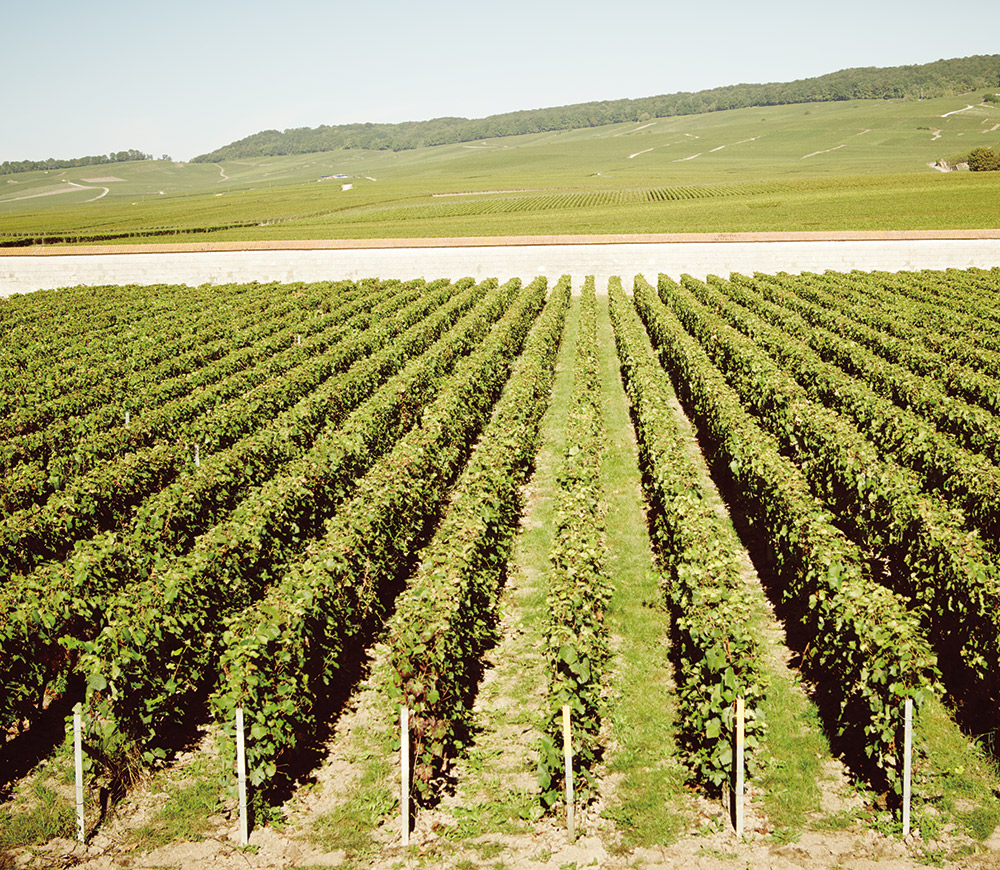With its Living Soils program, Moët Hennessy is making a commitment to sustainability as it relates to the wine and spirits industry and the planet. At the core of this initiative is a pledge to reduce the ecological footprint of Moët Hennessy’s maisons by preserving the soil in their terroirs and promoting environmentally conscious viticultural practices supported by scientific research.
Initially presented in 2020 at Vinexpo in Paris, the initiative outlines the steps Moët Hennessy will take to reach its goals—which, the company notes, are in the interest of the soils and the earth, as well as present and future generations. “Soil health and quality of life on earth are interdependent,” says Philippe Schaus, president of Moët Hennessy.
Become an S Insider
The latest in fashion, beauty, design, and arts & culture.
One of the first steps the company has taken is to reduce (with an eye to eventually eliminating) the use of herbicides in its vineyards. It has already made significant strides in this area: Veuve Clicquot, for example, hasn’t used herbicides in its vineyards since 2018; by 2020, the group was able to commit to no longer using herbicides in any of its Champagne vineyards. For 2021, it also pledges to make its Cognac vineyards herbicide-free, and is encouraging its growers in Champagne and Cognac to follow its lead by 2025 and 2028 respectively.
Another aspect to this initiative involves Moët Hennessy investing €20 million into a research and development centre in Champagne devoted to studying the science behind healthy soil and sustainable viticulture. The generous budget allocated to this project allows Moët Hennessy to expand and update its existing laboratories, test new processes and products, and foster creativity through collaboration.

As leaders in this space, Moët Hennessy’s maisons bring with them a rich history of winemaking expertise when it comes to maintaining vines and the soil. Fittingly, the group also plans to launch a Living Soils University, which will provide a space to learn about its processes and spark open discussions on sustainable winemaking practices. Through this educational institution, Moët Hennessy aims to share solutions and best practices while also taking actionable steps toward preserving and regenerating its resources.
The luxury group notes that transparency and ethics are at the heart of its strategy for the Living Soils initiative. Amrita Banta, managing director of agility research and strategy, acknowledges the growing desire among consumers for more clarity and accountability from the brands they support.
“Young consumers now see luxury brands as people, and they want them to be good people with priorities like sustainability,” she says. “They are looking for this honest conversation.”
Moët Hennessy realizes that, as market leaders, they have a duty and responsibility to involve not only their own maisons but the whole wine and spirits sector in a shared effort to create positive changes in relation to sustainability.
Working together is key, according to Schaus, who says, “Through Living Soils, Moët Hennessy seeks to unite its communities around the world and develop a program of social responsibility.”

